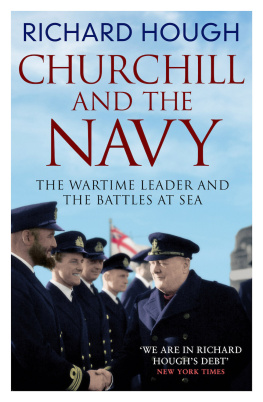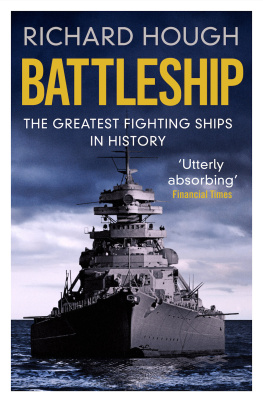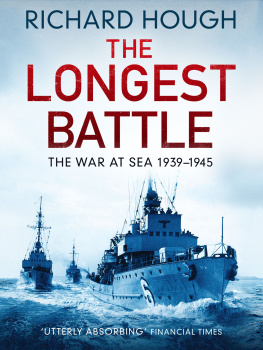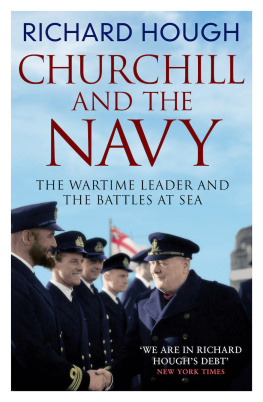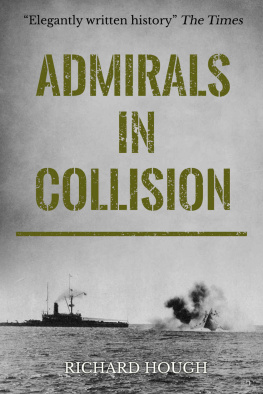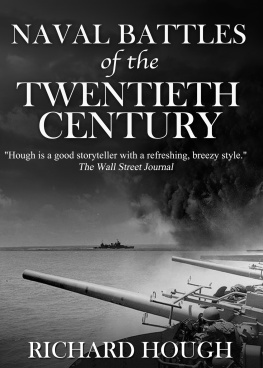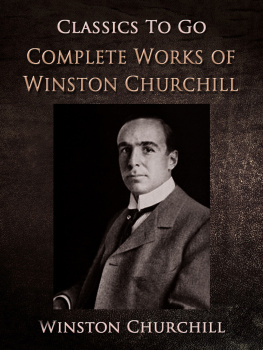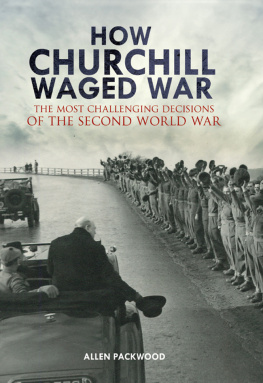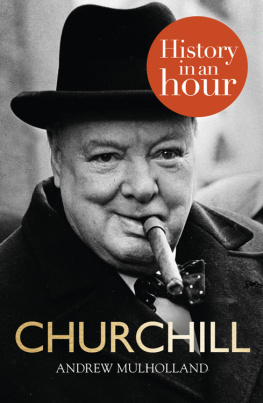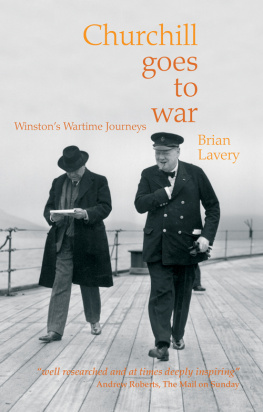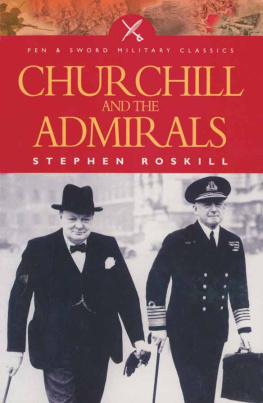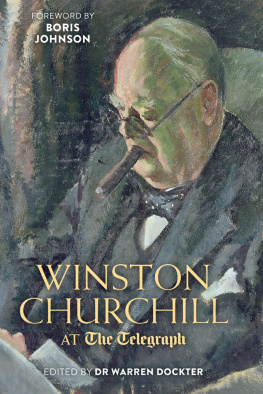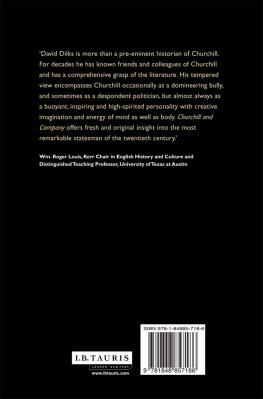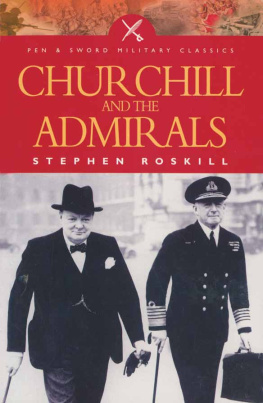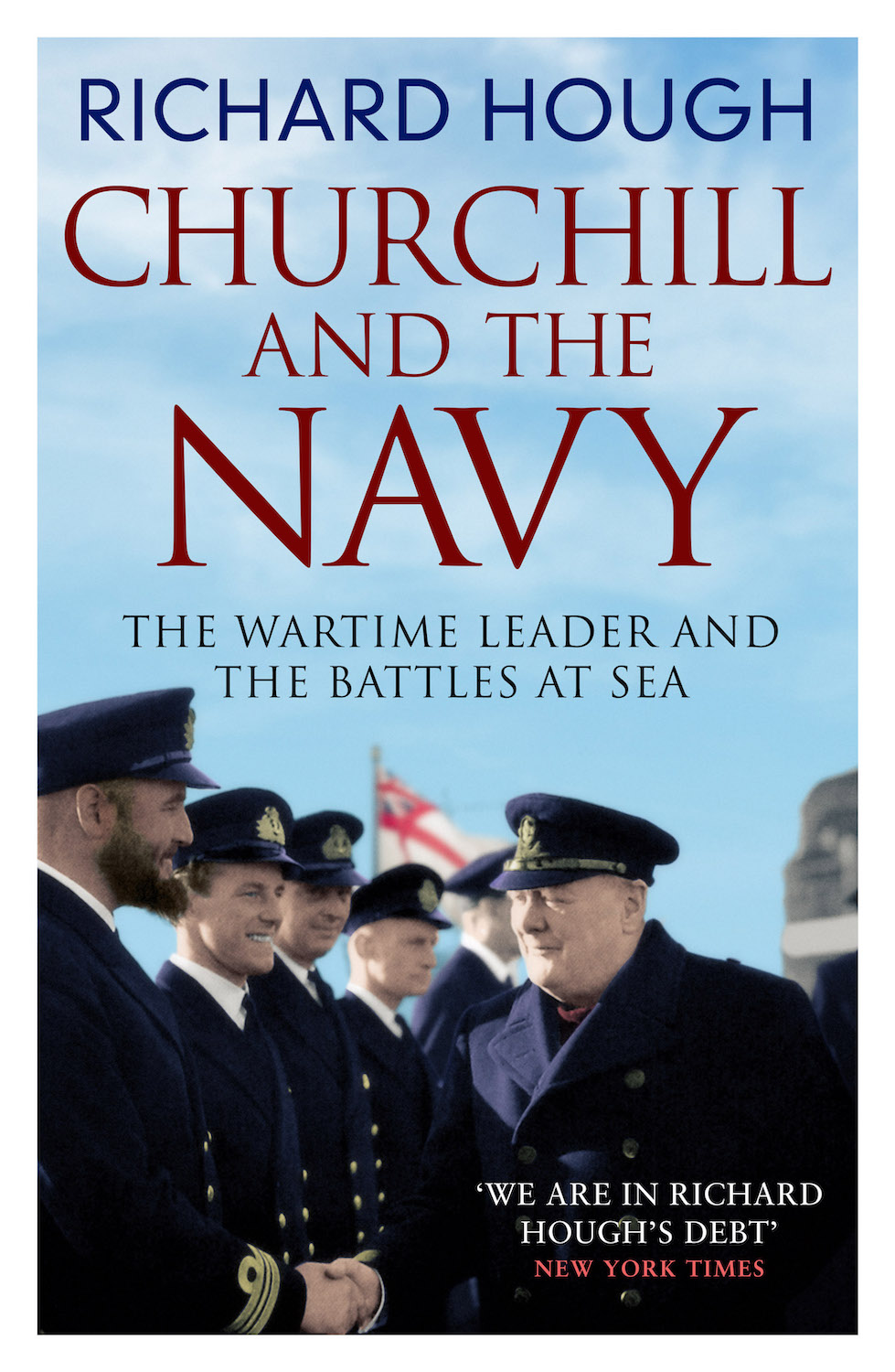
Churchill and the Navy
Dedication
For Peter
Acknowledgements
The theme of this book Churchills relationship with the Royal Navy and, by association, with Franklin D. Roosevelt is one that I have discussed with fellow naval historians and many officers who served at sea in the Second World War, and some in the First World War. Of them all I would like to single out for grateful acknowledgement Lieutenant-Commander Peter Kemp, whose contribution and tangible help are evident throughout; Admiral Sir Guy Grantham, Captain John Litchfield, the late Captain Stephen Roskill, the late Professor Arthur Marder, Martin Gilbert, Sir Clifford Jarrett and the late Sir John Lang, who saw so much of the inside of the Admiralty, and many more of the silent service, some of whom wish to remain anonymous. In America the Historical Department of the Department of the Navy and the archivists and staff of the Franklin D. Roosevelt Library at Hyde Park have been particularly helpful, and I am most grateful to them.
Richard Hough
Foreword
Although essentially an army man, with a soldiering past and a military ancestry, it was the Admiralty rather than the War Office which first claimed Winston Churchill in 1911. It was, he remarked, the biggest thing that has come my way. And, when offered a cup of tea by the Prime Ministers daughter, he exclaimed, I dont want tea I dont want anything anything in the world. Your father has just offered me the Admiralty.
The regular army was a puny service by contrast with the mighty navy, and at the age of thirty-six Churchill, bursting with reforming zeal and with small concern for establishment feelings and opinions, began a relationship which lasted through peace and war almost until his death. It was never a quiet affair. It was marked by volatile extremes, from his rejection and ejection in May 1915 and his return, like the homecoming of a hero Winston is back! in September 1939.
With his admirals, Churchill was, in his early days, impatient, intolerant and highly critical. There were only a handful he admired without qualification Fisher, Beatty, Keyes among them all positive, aggressive leaders.
Then, within days of his return to the Admiralty, Churchill received a letter from Franklin D. Roosevelt, welcoming him back to his old job and asking to be kept in touch with the course of events. It was the prelude to a relationship between the self-named Former Naval Person and the President, whose own career had been as closely linked with the United States Navy as Churchills with the Royal Navy. Thus were born a unique alliance and a personal friendship which were mountainous in their achievement.
It all began as does this book with a meeting at sea, appropriately aboard mighty men owar.
The Fishing Party
On 4 August 1941 the battleship Prince of Wales, still carrying the scars of her recent fight with the German battleship Bismarck, steamed out of the bleak anchorage of Scapa Flow into the mist of the North Atlantic. Unlike her departure in May, her errand was a peaceful one. There were 14-inch and 5.5-inch shells in the ships magazines, but there was also rare prime beef, grouse, caviar, champagne and brandy in the galleys stores. There were other refinements for the satisfaction of the battleships principal passenger, including a number of full-length feature films for showing after dinner in the wardroom. One of them was Lady Hamilton, starring Laurence Olivier and his wife Vivien Leigh.
It was twenty-seven years to the day since this passenger, now the Prime Minister of Britain, had sent out the message to every ship of the Royal Navy: Commence hostilities against Germany. As the Prime Minister signalled the President of the United States, reminding him of the anniversary, We must make a good job of it this time. Twice ought to be enough.
And now this Second World War had been waged against the same adversary for almost two years, with Britain and the British Empire and Commonwealth fighting for much of the time alone against the fascist dictatorships of Germany and Italy.
The British people had been told nothing of this trip. A special train had steamed out of Marylebone station in London at noon the previous day with the Chiefs of Staff and their staffs and many others of the hierarchy of government and the war machine on board. An hour later the train stopped briefly at a small station where the Prime Minister awaited it. Winston Churchill was wearing a blue suit, a yachting cap as if heading for Cowes regatta, and he was, as always, smoking a large cigar. He smiled and waved to the crowd on the opposite platform, stepped into the train and, almost at once, settled down to a substantial lunch of tomato soup, sirloin of beef and raspberry and currant tart, washed down with champagne. He was in a jovial mood of youthful excitement for the adventure that lay ahead, an expedition that contained all the ingredients he relished a secret journey, an historic first meeting at a secret rendezvous with Roosevelt, another man of supreme power and authority, with whom he had struck up a close friendship by letter, telegram and telephone. In addition, he would have a sight at least of the American continent which he loved, and all this with a generous dose of danger.
And now, as the Prince of Wales rose and fell with ponderous dignity on the swell, Churchill emerged to take a turn on the quarterdeck, pausing to be introduced to two writers who were part of the Premiers entourage, Howard Spring and H. V. Morton. I hope we shall have an interesting and enjoyable voyage, he said with the faint lisp familiar to the whole civilized world through his recent broadcasts. Then after a brief pause and change of voice: And one not entirely without profit.
The voyage was never without interest but was not always enjoyable, even for the Prime Minister, who evacuated himself from his admirals quarters in the middle of a night storm and settled himself down in the admirals sea cabin on the bridge instead. The destroyer escort could not maintain station in this storm and the battleship proceeded on its own at high speed as the best defence against U-boat attack. But there were calmer days later. Churchill conducted his affairs of state, sent and received numerous messages, talked, read one of C. S. Foresters Hornblower books with great enjoyment, and attended a film show every night his favourite form of relaxation.
The films were a mixed lot, Laurel and Hardy in the unfortunately titled Saps at Sea (a gay but inconsequent entertainment was the Prime Ministers comment), Paulette Goddard in Ghost Breakers, and Lady Hamilton which he had already seen four times but which made him cry again when Nelson, dying, begged his old friend and captain, Kiss me, Hardy. When the lights went up Churchill stood, turned and addressed the audience in solemn tones. I thought this would interest you, gentlemen, he said in reference to the Bismarck fight, who have been recently engaged with the enemy in matters of equal importance. Good night!
Another pastime for the Premier was playing backgammon with Harry Hopkins. Hopkins, aide, close friend and confidant of President Roosevelt, had been in London and subsequently in Moscow to discuss with Stalin how best the United States could help Russia with war materials. Churchill had taken this frail-looking, shrewd and kindly American to his heart. Hopkins arrived by bomber from Russia in time to join the
Next page
